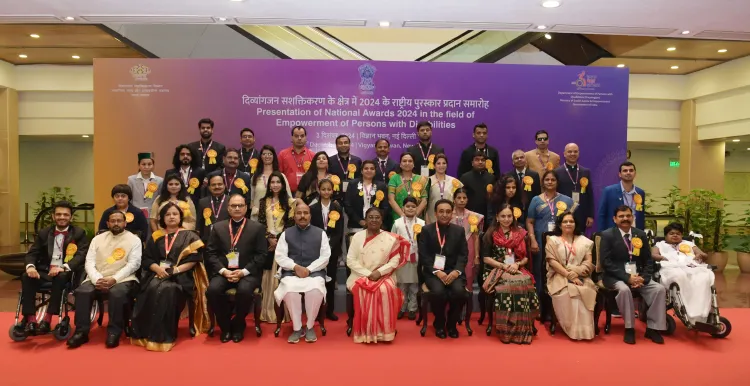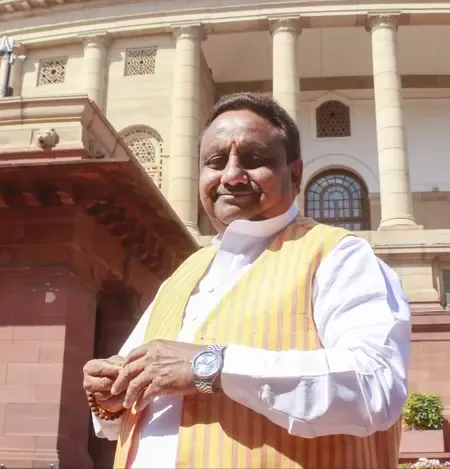Enhancing Lives of the Disabled Through Employment and Economic Empowerment: President Murmu's Vision

New Delhi, Nov 3 (NationPress) Disability is not a deficiency but a special condition, asserted President Droupadi Murmu on Tuesday, calling for equal facilities and opportunities in employment, enterprise, and economic empowerment to uplift the lives of individuals with disabilities.
Murmu made these remarks during the presentation of the National Awards for the Empowerment of Persons with Disabilities for the year 2024 in New Delhi, coinciding with the International Day of Persons with Disabilities.
While congratulating the award recipients, the President highlighted the significant social impact of these honors.
“By following their examples, other individuals and organizations can progress towards empowering persons with disabilities,” she stated.
The International Day of Disabled Persons is observed annually on December 3, aiming to promote the rights and welfare of persons with disabilities across all sectors of society and development.
This year's theme focuses on amplifying the leadership of persons with disabilities for an inclusive and sustainable future.
The President encouraged the creation of a barrier-free environment alongside equal facilities and opportunities for disabled individuals.
“Encouraging entrepreneurship among Divyangjan, enhancing their skills, providing employment, procuring their products, and offering marketing support will boost their leadership capabilities,” Murmu remarked.
She emphasized that the chance to work, just like anyone else, can foster a sense of self-confidence in persons with disabilities, allowing them to lead fulfilling lives.
“Their circumstances can be improved through employment, enterprise, and economic empowerment,” the President stated.
She called upon “all of humanity” to ensure that disabled individuals feel valued and equal.
“Disability should not be regarded as a deficiency of any sort. It is a special condition,” the President urged, encouraging empathy towards the disabled instead of mere sympathy.
“They require sensitivity, not kindness; natural affection, not special attention. Society must guarantee that they experience equality, dignity, and respect alongside other community members,” Murmu concluded.









